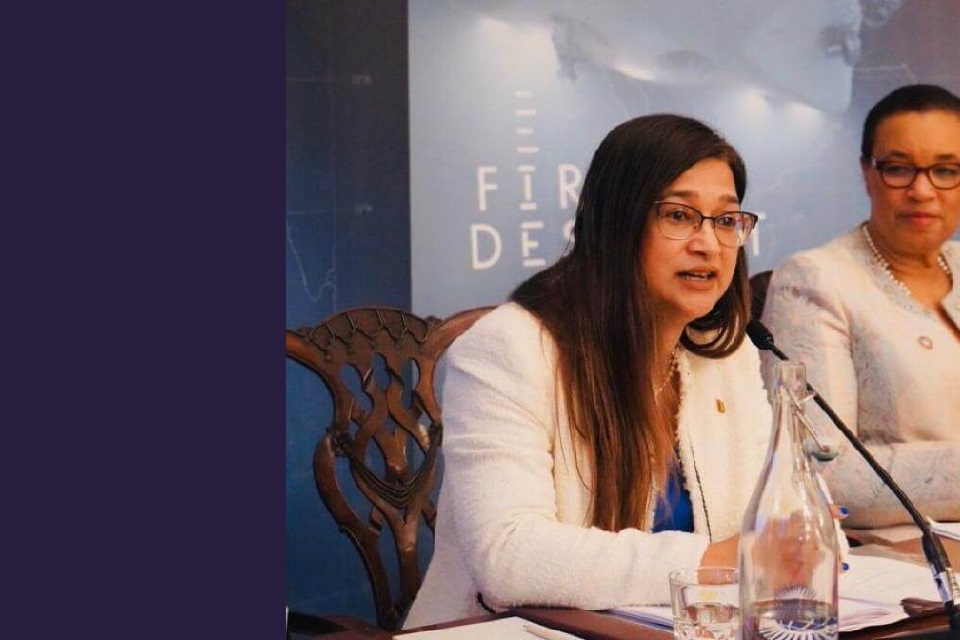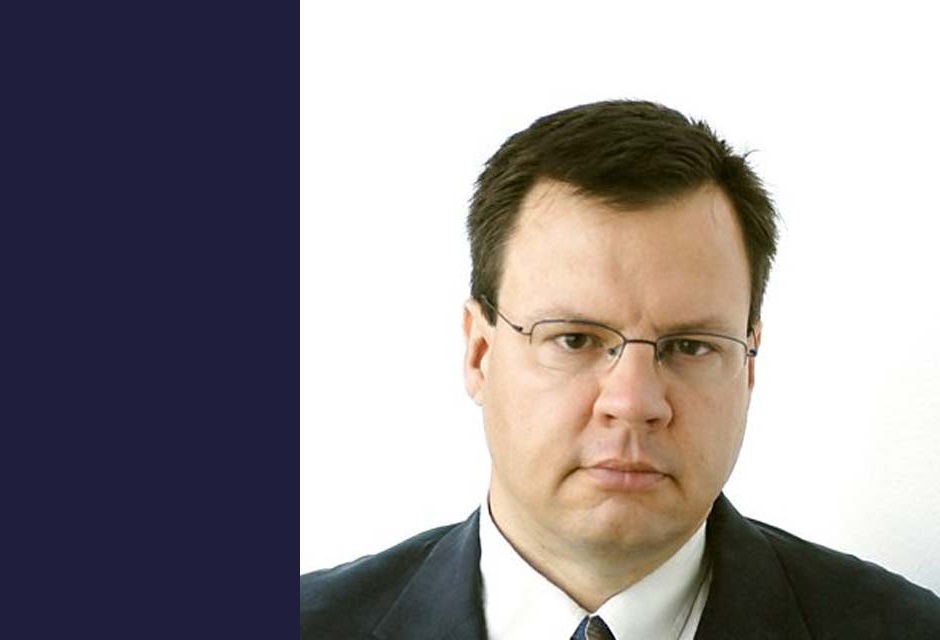International Relations - BA (Hons)
International Relations is the study of global affairs, as well as ideas, interactions, and structures that affect almost everything around us. It’s the study of culture, politics, economics, society, organisations, structures, and ultimately, power. At Keele, our wide reaching regional expertise and our broad approach to the discipline, will teach you how to interpret global, social, political, and economic interactions. With applicability to numerous careers and industries, a degree in International Relations aims to provide you with the knowledge and transferable skills to pursue a wide range of careers.
Year of entry
- 2025
Course type
- Single Honours
UCAS code
- L254
Duration of study
- 3 years / 4 years with international or placement year
Why study International Relations at Keele University?

Inspiring alumni
Once I started studying, I realized that Keele is a wonderful place for an international student. It had the feeling of one big family and the campus is simply gorgeous. I enjoyed my time immensely and made many friends, who I am still in touch with. The International Relations course at Keele is a very practical course. The course gave me an excellent grounding and understanding of diplomacy, how international law works, and about the complex, multi-layered ties sovereign states have with each other.
Teaching Excellence Framework GOLD
Keele University has been awarded the highest rating of gold in the teaching excellence framework (TEF), 2023. The TEF assessment identifies excellence in the educational experience and outcomes of our students, focusing on all undergraduate courses and students.

Additional opportunities
There are a range of additional opportunities available when studying this course.
Please note, undertaking one may impact upon the availability of another.
Entry requirements
The following section details our typical entry requirements for this course for a range of UK and international qualifications. If you don’t see your qualifications listed, please contact us to find out if we can accept your qualifications. If you don't think you'll meet the entry requirements specified, you may be able to gain entry to this course via a Foundation Year.
Typical offer
Please ensure that you read the full entry requirements by selecting your qualifications from the dropdown menu below. This will include any subject specific, GCSE/Level 2 Maths, and English language requirements you may need.
Please select your qualification from the drop-down list below for the full entry requirement information
A Level
BBC in three A Levels.
Contextual Offer: CCC in three A Levels.
You will also need: an English language qualification (see below).
BTEC Extended Diploma / National Extended Diploma
DMM in any BTEC Extended Diploma / National Extended Diploma.
Contextual Offer: MMM in any BTEC Extended Diploma / National Extended Diploma.
You will also need: an English language qualification (see below).
BTEC National Diploma / Diploma
Distinction and Merit in any BTEC National Diploma / Diploma and C in one A Level, or Merit and Merit in BTEC Diploma and A in one A Level.
You will also need: an English language qualification (see below).
BTEC National Extended Certificate / Subsidiary Diploma
Distinction in any BTEC National Extended Certificate / Subsidiary Diploma and CC in two A Levels, or Merit in any BTEC National Extended Certificate / Subsidiary Diploma and BB in two A Levels.
You will also need: an English language qualification (see below).
T Level
Merit in any T Level.
You will also need: an English language qualification (see below).
International Baccalaureate Diploma
554 in three Higher Levels or 29 points.
Contextual Offer: 444 in three Higher levels or 27 points.
You will also need: an English language qualification (see below).
International Baccalaureate Career-Related Programme
We encourage applications with the IBCP but recognise that your combination of qualifications may differ depending on where you are studying.
If you are taking a BTEC National Diploma / Diploma with one or more Higher Levels, your offer will be similar to our BTEC + A level offer (see 'BTEC National Diploma / Diploma') but with an HL requirement of 6 for A, 5 for B, or 4 for C.
For any other combination, please contact the University Admissions Team for advice.
Access to HE Diploma
112 UCAS points in any Access to HE Diploma including Distinction in at least 15 Level 3 credits.
You will also need: an English language qualification (see below).
Welsh Baccalaureate / Bagloriaeth Cymru
The Advanced Skills Challenge Certificate is equivalent to one full A Level at the same grade and can be included alongside 2 other A Levels in a standard A Level offer for this course (see A Level). All subject specific requirements will still need to be met.
Scotland - Highers and Advanced Highers
BCCCC in five Highers, or CD in two Advanced Highers and CC in two Highers, or CCD in three Advanced Highers.
You will also need: an English language qualification (see below).
Extended Project Qualification (EPQ)
If you have B or higher in the EPQ and are studying A Levels, BTEC, the International Baccalaureate Diploma, or an Access to HE Diploma, you will typically receive an alternative offer which will be lower than the standard offer. Please see 'Alternative and contextual offers' below.
Core Maths
If you have B or higher in Core Maths and are studying A Levels, BTEC, the International Baccalaureate, or an Access to HE Diploma, you will typically receive an alternative offer which will be lower than the standard offer. Please see 'Alternative and contextual offers' below.
Ireland - Leaving Certificate
H3, H4, H4, H4, H4, H4 in the Irish Leaving Certificate.
You will also need: an English language qualification (see below).
China - Gaokao
70% in the Gaokao.
You will also need: an English language qualification (see below).
India - Standard XII
Average of 65% from four subjects in the ICSE, CBSE or Western Bengal Standard XII, or average of 70% from four subjects in any other Standard XII.
You will also need: an English language qualification (see below).
Germany - Abitur
2.4 overall average in the Abitur.
You will also need: an English language qualification (see below).
France - Baccalaureate
12 in the French Baccalaureate/International Option Baccalaureate/Baccalauréate Français International.
You will also need: an English language qualification (see below).
Hong Kong - Diploma
443 from two electives and one core subject in the HKDSE.
You will also need: an English language qualification (see below).
Spain - Bachillerato
Overall average of 7 in the Título de Bachillerato.
You will also need: an English language qualification (see below).
Italy - Diploma di Esame di Stato
75% in the Esame di Stato.
You will also need: an English language qualification (see below).
Cyprus - Apolytirion
17.5 / 83% in the Apolytirion.
You will also need: an English language qualification (see below).
Portugal
Overall average of 15 in a Secondary Certificate.
You will also need: an English language qualification (see below).
Canada - Diploma
60% / BCCCC in five courses in the Grade 12 Diploma.
You will also need: an English language qualification (see below).
Kenya - KCSE / Diploma
We do not accept the Kenya Certificate of Secondary Education for direct entry. However, you can apply to study an International Foundation Year at Keele University International College. On successful completion, you can progress to an undergraduate degree at Keele.
We may accept a two year Diploma. Please contact the University Admissions Team for advice.
Nigeria - Senior School Certificate / OND
We do not accept the Senior School Certificate (WAEC or NECO) for direct entry. However, you can apply to study an International Foundation Year at Keele University International College. On successful completion, you can progress to an undergraduate degree at Keele.
We may accept an Ordinary National Diploma with GPA of 2.5 or a Merit / Lower Credit. Please contact the University Admissions Team for advice.
USA - Advanced Placement
443 from three Advanced Placement subjects.
You will also need: an English language qualification (see below)
Ghana
We do not accept the West African Senior School Certificate Examination for direct entry. However, you can apply to study an International Foundation Year at Keele University International College. On successful completion, you can progress to an undergraduate degree at Keele.
Sri Lanka - Advanced Level
BBC in three Advanced Levels.
You will also need: an English language qualification (see below)
Malaysia - STPM
BBC in three Principal Level subjects in the STPM.
You will also need: an English language qualification (see below).
Pakistan - Secondary School Certificate
We do not accept the Secondary School Certificate for direct entry. However, you can apply to study an International Foundation Year at Keele University International College. On successful completion, you can progress to an undergraduate degree at Keele.
Singapore - A Levels (H2)
BBC in three H2 Levels.
You will also need: an English language qualification (see below)
European Baccalaureate
70% overall.
You will also need: an English language qualification (see below).
NCUK
Pass NCUK Foundation Year with BBC and a C in EAP English Language module.
Uganda - Advanced Certificate of Education
BBC in three Principal Level subjects in the Advanced Certificate of Education.
You will also need: an English language qualification (see below).
Zimbabwe - Advanced Level GCE
BBC in three Advanced Level subjects.
You will also need: an English language qualification (see below).
English language requirements
All of our courses require an English language qualification or test. For most students, this requirement can be met with a 4 or C in GCSE English. Please see our English Language guidance pages for further details, including English language test information for international students. For those students who require an English language test, this course requires a test from Group A.
Alternative and contextual offers
We're committed to ensuring equality of opportunity to all our applicants with the potential and motivation to succeed, regardless of background. That's why we operate a range of alternative offer schemes with clear eligibility criteria, including contextual offers, offers for those studying within the Keele region, and recognising a range of additional qualifications in your offer.
General information
The entry grades outlined in this section indicate the typical offer which would be made to candidates, along with any subject specific requirements. This is for general information only. Keele University reserves the right to vary offer conditions depending upon a candidate's application.

"During my time at Keele, I have studied International Relations, and I can truly say that the skills and experiences that the programme has offered, has developed me into a confident student, with vital knowledge of how the world works. International Relations as a discipline, has encouraged me to immerse in debates and independent thinking about the relations between states, roles of international organisations, security, and the political environment. This I believe has become crucial to better understanding the world which is an important skill to take into the working world. Throughout the course, the lecturers are supportive and encouraging with no question about the lecture materials or assessments too big or too small."

INSPIRING ALUMNI
The course was intellectually challenging and featured a wide range of subjects, all of great interest and very useful. To applicants considering coming to Keele I would say: come and enjoy one of the friendliest and most challenging courses that will be of use to you for years to come. Following my graduation from Keele, I went into journalism, joined the BBC and I am now Business Correspondent. The course has influenced everything I have done since and is still a great asset.
Foundation year
Our Foundation Year provides an excellent alternative route to Keele, providing a unique opportunity to better prepare for your chosen degree, and with guaranteed entry onto your undergraduate course once you successfully complete your Foundation Year.
This extra year of study can improve your academic skills, expand your subject knowledge, give you a better understanding of higher education and, perhaps most importantly of all, build your confidence.
Keele University is consistently ranked among the top universities for student satisfaction, and we have over 70 years' experience of teaching a foundation year to students. On the Keele Foundation Year, you'll study on campus, joining our undergraduate community from the outset, with access to all the facilities and support that you'd get as an undergraduate student at Keele.
The information in this Foundation Year section is for UK/Home applicants. Where an international Foundation Year is available, please see the 'Information for international students' tab.
The information within this section is for students wishing to start their studies in September. If you would like to start this course in January, please visit our January pages for further details.
Course content
Our Foundation Year allows you to develop your critical thinking, academic reading, writing, and communication study skills along with subject-specific knowledge and skills which will be invaluable in your academic studies and beyond. Upon meeting the progression criteria and successfully completing our Foundation Year, you will automatically progress into your Keele undergraduate degree with the confidence that you have the skills, and knowledge needed to successfully complete your course.
This Foundation Year is a two-semester programme which provides a tailored pre-degree programme of study to better prepare you for the BA (Hons) International Relations degree. For example, the Foundations of Social Sciences 1 module introduces you to the ‘backbone’ of social sciences, the concept of social inclusion, the factors that lead to exclusion and the impact this may have on individuals, families and communities. Course content has been developed in collaboration with degree teaching teams, so that by the time you begin Year 1, you will be ready to excel at your studies, as the majority of our Foundation Year students do.
Find out more about the Keele Foundation Year, including information about teaching and assessment methods by visiting the Foundation Year homepage.
Course structure
The module details given below are indicative, they are intended to provide you with an idea of the range of subjects that are taught to our current students. The modules that will be available for you to study in future years are prone to change as we regularly review our teaching to ensure that it is up-to-date and informed by the latest research and teaching methods. The information presented is therefore not intended to be construed and/or relied upon as a definitive list of the modules available in any given year.
Semester one modules
| FYO-00247 | Foundations: Breaking the code - Understanding Academic Writing | 15 credits |
| FYO-00263 | Foundations of Social Sciences - 1 | 15 credits |
| FYO-00265 | Foundations of Social Sciences - 2 | 15 credits |
| FYO-00267 | Foundations of Social Sciences - 3 | 15 credits |
Semester two modules
| FYO-00271 | University Research Portfolio | 30 credits |
| FYO-00269 | Advancing Social Sciences | 30 credits |
Entry requirements
The entry grades outlined in this section indicate the likely offer or range of offers which would be made to candidates along with any subject specific requirements. This is for general information only. Keele University reserves the right to vary offer conditions depending upon a candidate’s application. Read more about our undergraduate entry requirements.
- Between 40-48 UCAS points from at least 1 A level/level 3 qualification or equivalent, or
- Relevant work experience
AND
- GCSE English Language at grade 4 (C), or Level 2 Functional Skills, or
- IELTS 5.5 (with 5.5 in all subtests)
How to apply
Students should apply for BA (Hons) International Relations with Foundation Year (UCAS code: L2L3) through UCAS at www.ucas.com
Direct entry students
If you already have your qualifications, are not expecting any further results and only wish to apply to Keele, please contact the Admissions Office directly.
The information in this Foundation Year section is for UK/Home applicants. Where an international Foundation Year is available, please see the 'Information for international students' tab.
We also offer a January start for some of our Foundation Year courses. Adopting a blended learning approach, the January start is particularly useful for students wishing to return to education following time out of studying, or who are seeking a flexible approach to their Foundation Year studies. Our January start is available across most of our Science, Humanities, Social Science and Business courses.
Whilst still being a full-time course, our blended delivery model combines live teaching sessions - both online and on-campus - with self-directed study, enabling you to predominantly study at a time that suits your lifestyle. You will benefit from weekly online taught sessions which encourage you to engage with your teachers and peers.
In addition to online study there will be a series of full study days that you will be required to attend throughout each semester. These sessions may include lab-based activities, group work, review of course and assessment materials studied online. They will emphasise opportunities for you to deepen your knowledge and understanding of your chosen route.
Please refer to the September start tab for more information about the entry requirements and what you will study. The modules that you will take on a January start Foundation Year will be similar to those for the September start, but on a compressed timescale and tailored to a blended learning approach (with the majority of learning taking place online).
For more information, including fees, the UCAS code for this course, how to apply, and how you will be taught, please visit our January Start Foundation Year webpage.
Our International Foundation Year is delivered on campus through Keele University International College (KUIC). Find out more about the International Foundation Year options on the KUIC website.
Discover the Keele difference
Everything’s on your doorstep at Keele, and you’ll soon feel at home and make friends wherever you go.
We help students manage their money and ensure that they receive any funding for which they may be eligible.
Make yourself more employable after graduation by taking advantage of the whole host of additional opportunities.





